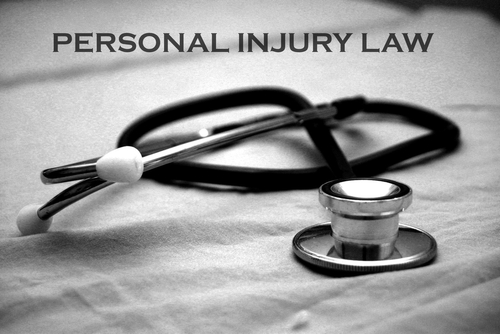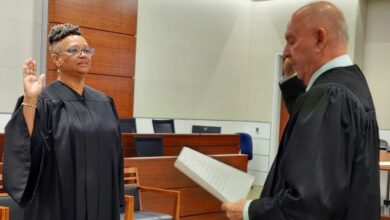Protect Your Rights: A Guide for Caribbean-Americans to Personal Injury Claims

Navigating the complex nuances of personal injury claims can be daunting for Caribbean-Americans living particularly during car accidents, slip and falls or workplace injuries. Knowing your rights and the claims process are vital components in receiving appropriate compensation when involved in an incident.
When this occurs it’s essential that immediate steps be taken in order to safeguard those rights as soon as possible after any incident occurs. This guide seeks to educate Caribbean-Americans with knowledge about personal injury claims by outlining key steps and considerations designed to help protect them in an aftermath injury situation.
Understanding Your Rights
Personal injury means you were injured by someone else’s negligence and have rights related to the claims process for compensation that includes not only the cost of medical treatment and suffering as psychological harm from the experience of injury.
Like most other states in the US, Texas runs on the “comparative negligence” principle which affirms those injured can still recover proportional damages from the other party regardless of their level of contribution to the accident.
It is especially important that every member of the Caribbean-American understands what those rights are since their cultural background may substantially differ from the American legal system. Even if people don’t trust the legal system, or fear complications can arise, having knowledge of the laws serve as a strength can help them fight for what they deserve.
Steps to Take After an Accident
Knowing what steps are essential when responding to an accident. Seeking medical treatment, even if it appears minor, is crucial in protecting your rights and making a claim successful. While concussions or internal bleeding might not appear immediately evident, seeking evaluation by medical professionals early will ensure any injuries are documented early – this documentation could prove essential in court cases against negligent parties.
Once medical assistance is secured, it’s vitally important that photographs of the accident scene be taken. Make sure to take pictures showing any vehicle damage, injuries sustained and any environmental factors like poor lighting or unsafe conditions that might play into it. In addition, gathering witness statements will significantly strengthen your case.
Reporting an incident to the appropriate authorities is another critical step in your claim process, such as reporting to the police for car accidents or your supervisor for workplace injuries. Formal documentation will support your case more easily.
Not only when negotiating or litigating but also during medical treatment and expenses related to an accident claim. Keeping accurate records will prove to be invaluable during negotiations or litigation of claims related to that incident.
Common Types of Personal Injury Cases
The Caribbean-American community faces many different forms of personal injury claims. Car accidents, often due to reckless or distracted drivers or weather conditions, are one of the more frequent incidents; slip and fall accidents in stores, restaurants or public places often result in fractured bones or head trauma requiring urgent medical care.
Workplace injuries in industries where physical labor is involved are another serious threat; understanding all nuances associated with these cases is crucial in successfully navigating claims process successfully.
Tort law also include medical malpractice and product liability as part of the personal injury cases. Professional misconduct is a legal action that occurs when physicians offer substandard care that results in patient injury. Product liability claims come up when a defective product leads to harm; however, each category of personal injury case has its specificities in proving negligence — so, getting professional legal help when in such scenarios is always wise.
Evidence in Personal Injury Claims
The principle of evidence is critical in any personal injury lawsuit. This enables the attorneys to state the conditions of an occurrence, the degrees of harm incurred and who should be held accountable for them.
Medical records that show injuries sustained and treatments administered by medical practitioners; Police reports on the occurrence of an accident; Photograph which physically depict the scenes where injuries were inflicted.
Witness statements can also play a pivotal role, providing an objective account of what occurred. If possible, gather statements as soon after an accident as memories fade over time; your lawyer can assist in gathering this evidence efficiently during claims processing.
Selecting Legal Representation
Finding legal representation that understands the unique challenges facing Caribbean-American communities can provide invaluable support in your personal injury claim. Look for attorneys with proven success handling similar cases as yours; also keep an eye out for any cultural nuances which might impact the case.
A top attorney should provide free consultations to discuss your situation, evaluate your case, and explain all available legal options. They must communicate in clear terms so you feel at ease throughout the process and are informed. A strong attorney-client relationship relies on trust, understanding and effective communication.
Understanding the Claims Process
Navigating the personal injury claims process may seem intimidating, but breaking it into manageable steps may ease some of its stress.
Once you have collected evidence and secured legal representation, step one is filing your claim with either your insurer or court – your attorney will assist in creating all required documentation and making sure all legal protocols are followed correctly.
Once the claim is filed, negotiations with insurance companies typically follow. Be prepared for insurance adjusters to assess and potentially offer settlement offers from insurance companies; it’s important to remember that initial offers can often be too low or fail to adequately compensate you for losses incurred; your lawyer will work towards reaching a fair settlement that fully accounts for all damages suffered.
If a settlement cannot be reached, your case may proceed to court. Your attorney will help guide this process and represent your interests before the judge or jury.
Cultural Influences on Legal Representation
Culture can have an immense effect on how individuals perceive and engage with the legal system. Cultural backgrounds and community ties play a huge role in how Caribbean-Americans understand justice and legal processes – impacting whether individuals pursue claims, seek legal help, or trust the system to deliver fair outcomes.
Attorneys must recognize and respect these cultural dynamics to provide effective representation to their clients, making sure their values and concerns are acknowledged throughout the process. Furthermore, cultural competence fosters stronger attorney-client relationships – essential components of successful case outcomes.
Challenges Facing the Caribbean-American Community
The Caribbean-American community faces unique obstacles when seeking personal injury claims. Language barriers may impede communication with legal representatives and insurers, potentially leading to misrepresentations of facts.
Furthermore, cultural attitudes toward legal action may discourage individuals from seeking justice they deserve as people may view legal proceedings as adversarial processes that they would rather avoid engaging in.
Financial constraints can also present difficulties. Individuals may hesitate to pursue claims due to concerns over legal fees even though contingency fee arrangements exist; by providing information and support services for personal injury cases in their community, this obstacle can be overcome and individuals encouraged to take necessary actions when necessary.
Community Support
A community’s support can play an invaluable role in helping personal injury claims navigate the legal terrain successfully. Local organizations, advocacy groups and community leaders can offer invaluable resources such as legal workshops and information sessions tailored specifically for Caribbean-American communities.
Such initiatives help raise awareness of personal injury rights while simultaneously increasing access to legal resources that empower individuals seeking justice.
Engagement with the community also builds trust in the legal system, as members share experiences and provide mutual support during claims procedures.
By cultivating an environment of awareness and advocacy among Caribbean-Americans, this community can amplify its collective voice to ensure each of its members receive the protection and assistance they require.
Conclusion
Understanding personal injury claims is of utmost importance for the Caribbean-American community. Being knowledgeable of your rights, the claims process, and evidence can help ease post-injury challenges more smoothly. Engaging legal representation as well as community resources will further support you in seeking your due compensation.

